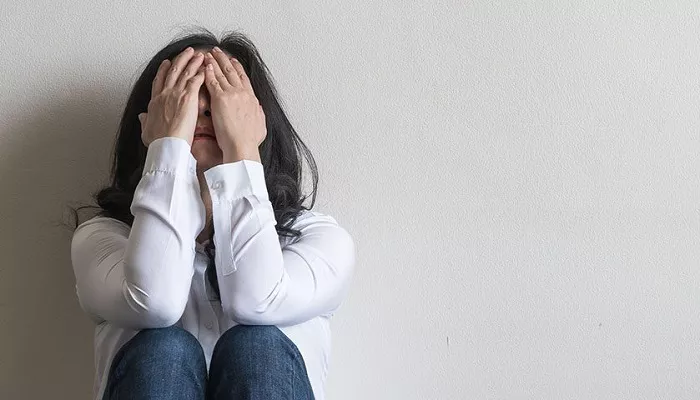Mental health has become a major topic in recent years. More people are talking about anxiety, depression, and other mental health conditions. But is mental illness actually increasing, or are we just more aware of it?
This article explores whether mental illness is truly on the rise. We will look at statistics, possible causes, and societal changes that may contribute to this trend. By the end, you will have a clearer understanding of the state of mental health today.
What the Data Says About Mental Illness Trends
Rising Reported Cases
Studies show that more people are reporting mental health issues than ever before. According to the World Health Organization (WHO), depression and anxiety disorders increased by over 25% in the first year of the COVID-19 pandemic. But even before the pandemic, mental health problems were growing.
- In the U.S., the National Institute of Mental Health (NIMH) found that nearly 1 in 5 adults lives with a mental illness.
- The CDC reports that suicide rates have increased by about 35% since 1999.
- Among young people, mental health struggles are even more common. A 2023 study found that 30% of teenagers experienced symptoms of depression, up from 12% in 2010.
Better Diagnosis and Awareness
While the numbers seem alarming, some experts argue that mental illness is not necessarily increasing—we are just getting better at recognizing it.
- In the past, mental health conditions were often ignored or misunderstood. Today, doctors have better tools to diagnose them.
- Society is more open about mental health. Celebrities, athletes, and influencers now speak openly about their struggles, reducing stigma.
- Schools and workplaces are implementing mental health programs, leading to more people seeking help.
So, is mental illness rising, or are we just detecting it more? The answer may be a mix of both.
Possible Reasons for the Increase in Mental Illness
If mental illness is truly becoming more common, what is causing it? Several factors may contribute to this trend.
Modern Lifestyle Stressors
Life today is very different from life 50 or 100 years ago. While technology has made many things easier, it has also introduced new stressors.
Social Media & Comparison Culture: Platforms like Instagram and TikTok can make people feel inadequate. Studies link heavy social media use to higher rates of anxiety and depression.
Work Pressure: Many jobs now demand long hours, constant connectivity, and high productivity, leading to burnout.
Financial Stress: Rising costs of living, student debt, and job insecurity contribute to chronic stress.
Loneliness and Social Isolation
Humans are social creatures, but modern life can be isolating.
- More people live alone than ever before.
- Online interactions often replace face-to-face connections, which can feel less fulfilling.
- The COVID-19 pandemic worsened loneliness, especially among older adults and young people.
Loneliness is strongly linked to depression and anxiety.
Environmental and Biological Factors
Some researchers believe that changes in our environment and biology may play a role.
Diet & Gut Health: Poor nutrition can affect brain function. Studies suggest a link between gut health and mental health.
Lack of Sunlight & Vitamin D: Many people spend most of their time indoors, which may contribute to mood disorders.
Toxins & Pollution: Some chemicals in food, water, and air may impact brain health over time.
Increased Academic and Social Pressure on Youth
Young people today face intense pressure to succeed.
- Schools are more competitive than ever.
- Social media creates unrealistic expectations about success, beauty, and happiness.
- Bullying has moved online, making it harder to escape.
This pressure may explain why mental health issues are rising fastest among teenagers and young adults.
Is Mental Health Treatment Keeping Up
Even if mental illness is increasing, is the healthcare system prepared to handle it?
Access to Mental Health Care
- Many people still struggle to get therapy or medication due to high costs and long wait times.
- In some areas, there are not enough mental health professionals.
- Stigma still prevents some people from seeking help.
Improvements in Treatment
On the positive side, mental health care has improved in many ways.
Teletherapy: Online counseling has made therapy more accessible.
New Medications: Better antidepressants and anxiety medications are available.
Holistic Approaches: Mindfulness, exercise, and diet changes are now recognized as important for mental health.
However, the demand for mental health services is growing faster than the supply.
What Can Be Done to Address the Mental Health Crisis
If mental illness is rising, what steps can society take to reverse the trend?
Early Intervention Programs
- Schools should teach emotional resilience and coping skills.
- Regular mental health screenings could catch problems early.
Reducing Stigma
- Open conversations about mental health can encourage more people to seek help.
- Employers should support mental health days and therapy access.
Improving Social Connections
- Communities should create more opportunities for in-person interaction.
- Families and friends can check in on loved ones who may be struggling.
Policy Changes
- Governments should fund mental health services better.
- Insurance companies should cover therapy and psychiatric care more fully.
Conclusion
The evidence suggests that mental illness is indeed becoming more common, especially among young people. However, better awareness and diagnosis also play a role.
Modern life brings many benefits, but it also creates new challenges for mental health. Stress, loneliness, social media, and economic pressures all contribute to rising mental health problems.
The good news is that society is starting to take mental health more seriously. With better access to care, reduced stigma, and stronger social support, we may be able to slow this trend.
If you or someone you know is struggling, reaching out for help is the first step. Mental health matters, and no one should have to face these challenges alone.
Related topics:
- Is Identity Crisis A Mental Illness?
- How Common Are Mental Illnesses In The U.S. And Why Anxiety Tops The List
- Mental Health First Aid: A Lifeline For Those In Crisis


